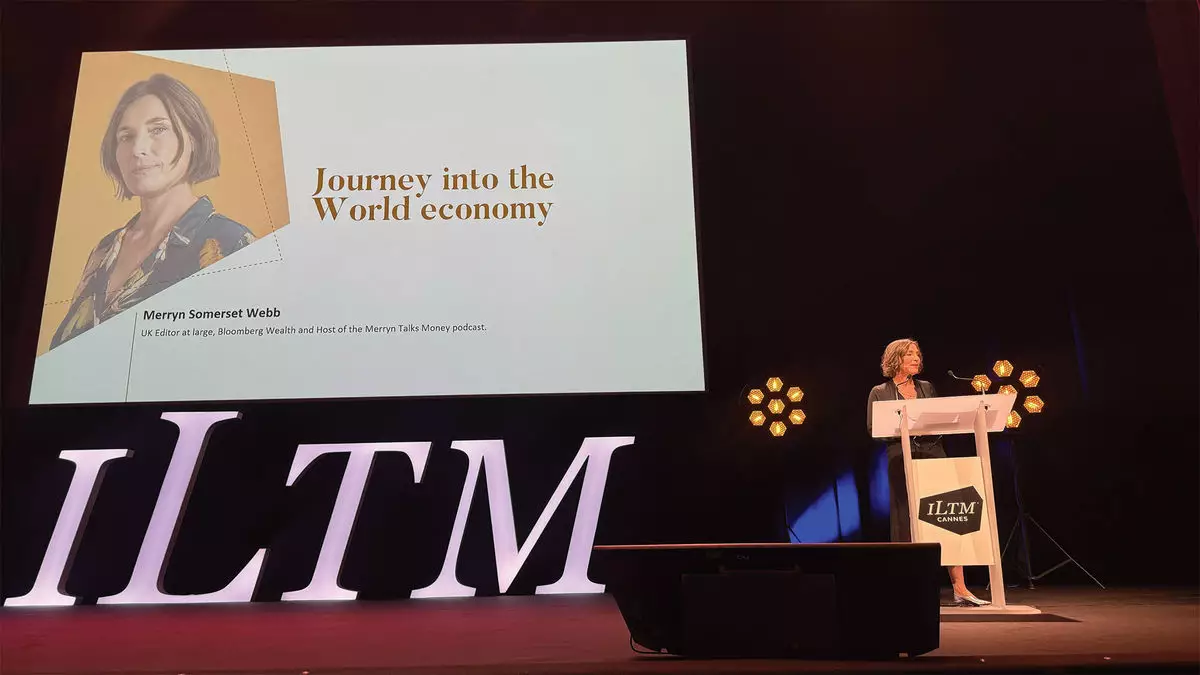As we move into a new era, the luxury travel industry stands at a crossroads filled with both trials and opportunities. Despite facing considerable global challenges—including geopolitical instability, demographic shifts, and economic pressures—industry insiders gathered at the recent International Luxury Travel Market (ILTM) in Cannes expressed unwavering optimism about the future of luxury travel. This sentiment emerges from the confluence of changing consumer behaviors post-pandemic and an unprecedented wealth transfer that may redefine luxury consumption.
The current landscape reveals that while geopolitical uncertainties and economic strains may unsettle the market, luxury travelers’ insatiable appetite for unique experiences is helping to push the sector forward. Reflecting on this dynamic, esteemed financial journalist Merryn Somerset Webb highlighted the magnitude of the ongoing wealth transfer and its implications for luxury travel. The impending passing down of $72 trillion from aging baby boomers to younger generations indicates a seismic shift in disposable income that cannot be ignored.
The modern luxury traveler is evolving, with a palpable preference for experiences rather than material possessions. Webb’s assertion that younger consumers are inclined to “pay a premium to travel” perfectly encapsulates this trend. The younger generations—specifically millennials and Gen Z—are reshaping luxury travel by prioritizing experiences that enrich their lives and foster connection with nature and culture.
Industry players are increasingly attuned to these preferences. For instance, leaders at prominent hotel groups such as Mandarin Oriental and Marriott International are redesigning their strategies to cater to these audiences. The concept of the “Trust Fund Young-Gen” you hear about is not merely a marketing tool; it’s a genuine recognition of a new breed of affluent travelers who seek one-of-a-kind experiences. These luxurious encounters cannot be replicated by traditional offerings like well-decorated rooms or top-notch amenities.
Targeting the Luxury Traveler of Tomorrow
The demographic landscape of luxury travel is shifting dramatically. As outlined by Tina Edmundson, president of luxury at Marriott International, millennials and Gen Z currently constitute around 45% of luxury sales, with projections indicating this figure could jump to 80% by 2030. This promises a distinctive landscape where adventure-based travel experiences will take center stage. For instance, Marriott is investing heavily in tented lodges, particularly in Africa, to align with these travelers’ increasing desire for authentic encounters in nature.
Furthermore, collaboration is emerging as a powerful strategy to connect with younger luxury consumers. Recent partnerships between luxury brands and services—such as helicopter transfers and elevated shopping experiences—are designed to attract and engage this younger audience effectively. Edmundson notes the existence of a burgeoning class of aspirational luxury travelers willing to spend high proportions of their income on travel, indicating a shift from targeting only high-net-worth individuals.
Evidence of Growth in Luxury Travel
Affirmations of the luxury travel market’s resilience are echoed by leading executives in the industry. Matthew Upchurch, CEO of Virtuoso, highlighted that despite economic uncertainty, his network has achieved a remarkable 14% spike in annual sales, reaching $35 billion. This trajectory is particularly evident in the ultrahigh-end segment, with a staggering 42% increase in bookings for trips exceeding $50,000. The appetite for high-end travel demonstrates that even in uncertain times, affluent travelers are willing to invest significantly in their experiences, reinforcing the notion that luxury travel is thriving.
Not only are sales metrics telling a positive story, but the fact that the ILTM Cannes chairman reported a record attendance of around 10,000 participants highlights renewed enthusiasm within the industry. The event experienced an almost 12% increase in attendance from the previous year, suggesting the luxury travel sector is not merely surviving but is on a growth trajectory.
The outlook for luxury travel appears bright amid compelling evidence of resilience, evolution, and ongoing growth. Although significant global challenges loom, the transformation in consumer behavior, characterized by an inclination toward experiential spending, creates a fertile environment for industry advancement. As travel brands adapt their offerings and marketing strategies to capture the interest of the newer generations, the luxury travel sector is likely to not only endure but flourish in the coming years.
To conclude, the luxury travel industry stands poised for an exciting future. With consumer preferences leaning heavily toward experiences and meaningful engagements, the sector must continue to innovate and tailor services to attract an ever-evolving demographic landscape. Acknowledging challenges while focusing on transformative opportunities will be essential for maintaining growth and vibrancy in this dynamic market.


Leave a Reply